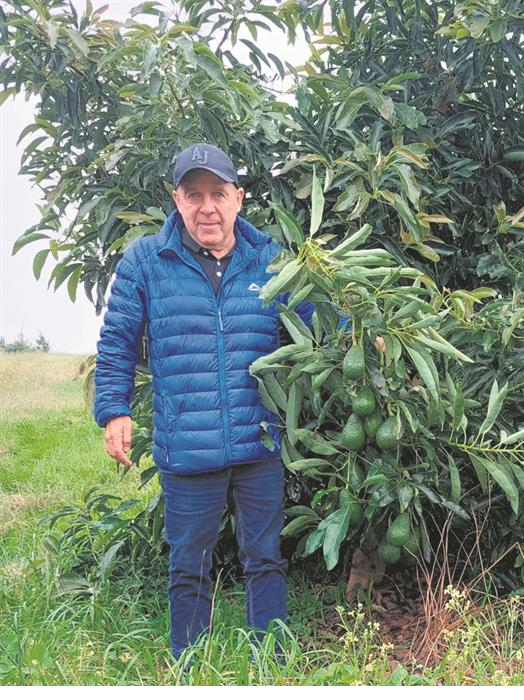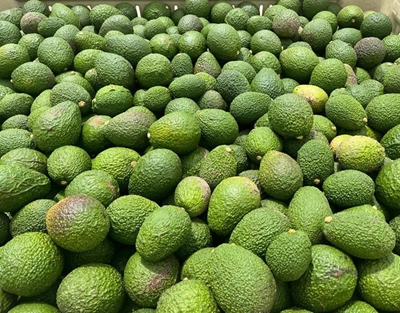PLETTENBERG BAY & KNYSNA NEWS - The Knysna and Plettenberg Bay area has seen a rapid rise in avocado tree planting in the past eight years, resulting in a tenfold increase in the number of hectares being planted in this booming Garden Route agricultural sector.
In 2017 there were 137 hectares of avocados in the entire Western Cape. Today, just eight years later, it is estimated there are about 1 400 hectares of established trees, according to Dr Guy Witney of EFN Multicrop Nursery in Wellington.
Witney's company is one of the companies in the Western Cape that supplies commercial clonal avocado trees to the industry.
Witney said the pioneers of avocados in the Western Cape started planting orchards in the early 2000s. For the next decade there was slow expansion until around 2018. When trees became more accessible, there was a rapid wave of expansion.
Most orchards were initially established in the foothills of the Outeniqua Mountains, between Mossel Bay and George.
New avocado project
"Recent interest in the area between Wilderness and Plettenberg Bay has seen several new avocado projects in the making," said Witney.
To date, about 130 hectares of new avocado orchards have been planted between Wilderness and Plettenberg Bay. It takes two to three years for trees to bear a significant crop.
The Southern Cape production area plugs a seasonal supply demand, making avos available 12 months of the year.
"New farmers in the area have had to find the perfect combination of microclimate, well-drained soil, and a reliable supply of good quality water to be successful. This isn't as easy as it may sound since farms with all three requirements are hard to find and land values in the area are high. Nonetheless, a half dozen farmers have established the new avocado footprint in the area," said Witney.
Job creation
With every three hectares of avocados planted, about one permanent job and two more casual farm jobs are created in farming.
"Of course the associated industries like trucking, farm supply companies and packing industries add further jobs in an almost 1:1 ratio in on-farm to off-farm jobs," said Witney.
South African fruit production depends largely on exports. Avocados are no exception.
The Western Cape supplies avocados to world markets at a time when supplies are sometimes short. This means fruit from the area generally realises good value on overseas markets.
Currently most South African avocados head to the European market. A proportion also goes to the Middle East and South Africa recently gained access to markets in India, China and Japan.
Vegetarian
Witney said India is a particular interest as an export market for South Africa because about 80% of the population are vegetarian and there is a massive middle class interested in exploring new items in their diet. Avocados are ideally suited to this because it is a nutrient-dense, healthy addition to the diet.
The South African Avocado Growers Association (SAAGA) and South Africa's trade mission are working together to convince India to remove a 30% tariff placed on South African avocados exported to India.
If this barrier is removed, it will become a very important destination market, he said.
What does the future hold?
"The world avocado market has been increasing dramatically for the past 30 years. This has largely been driven by health-conscious consumers who are including avocado in their diet, as well as record expansion of the middle class in many emerging markets," said Witney.
"However, production has also been increasing dramatically worldwide, and there is some concern that world production may exceed demand during some months and some seasons. I am very optimistic that the long-term economics will be very favourable to local farmers and South African farmers in general."
Healthiest oil
Growing interest in avocado oil for consumption and products containing avocado oil, such as cosmetics, have seen the demand for oil increasing. Dietitians have noticed that avocado oil is perhaps the healthiest of all food oils.
 Dr Guy Witney Photos: Supplied
Dr Guy Witney Photos: Supplied
"I think it's important for South African consumers to appreciate that fruit pricing, like all commodity pricing, follows normal supply and demand economics. In traditionally off-season periods, avocados have been expensive because of limited supply; or because most fruit on shelves has been imported," Witney explained.
"We expect that as the Western Cape industry expands, the supply of off-season fruits will increase and the price will likely moderate. Keep in mind, however, that if farmers realise higher prices for export at any time of the year, they will take advantage of this, which may result in local shortages. This occurred in late 2024 and early 2025."
‘We bring you the latest Garden Route, Hessequa, Karoo news’
















